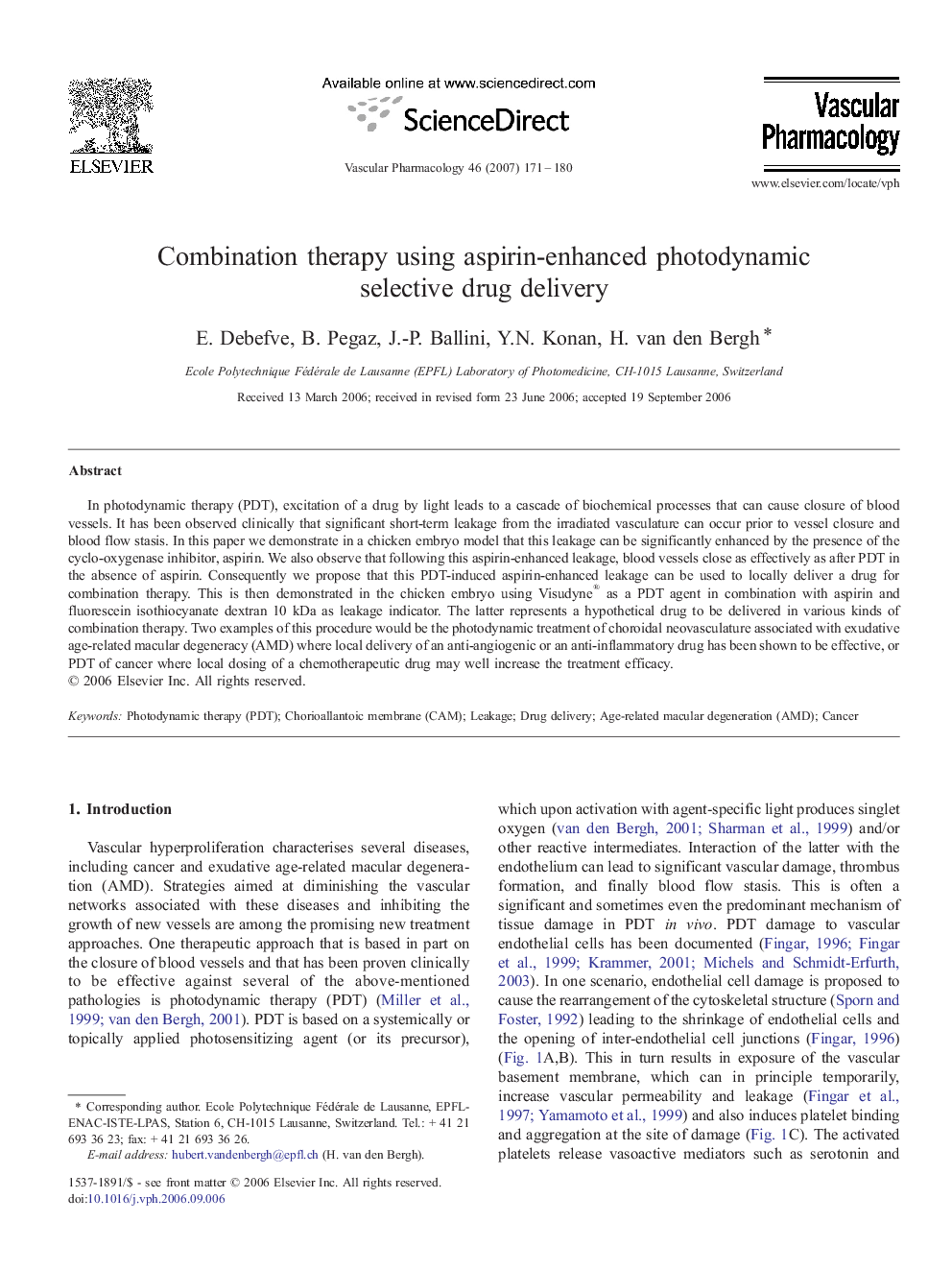| Article ID | Journal | Published Year | Pages | File Type |
|---|---|---|---|---|
| 2574979 | Vascular Pharmacology | 2007 | 10 Pages |
Abstract
In photodynamic therapy (PDT), excitation of a drug by light leads to a cascade of biochemical processes that can cause closure of blood vessels. It has been observed clinically that significant short-term leakage from the irradiated vasculature can occur prior to vessel closure and blood flow stasis. In this paper we demonstrate in a chicken embryo model that this leakage can be significantly enhanced by the presence of the cyclo-oxygenase inhibitor, aspirin. We also observe that following this aspirin-enhanced leakage, blood vessels close as effectively as after PDT in the absence of aspirin. Consequently we propose that this PDT-induced aspirin-enhanced leakage can be used to locally deliver a drug for combination therapy. This is then demonstrated in the chicken embryo using Visudyne® as a PDT agent in combination with aspirin and fluorescein isothiocyanate dextran 10Â kDa as leakage indicator. The latter represents a hypothetical drug to be delivered in various kinds of combination therapy. Two examples of this procedure would be the photodynamic treatment of choroidal neovasculature associated with exudative age-related macular degeneracy (AMD) where local delivery of an anti-angiogenic or an anti-inflammatory drug has been shown to be effective, or PDT of cancer where local dosing of a chemotherapeutic drug may well increase the treatment efficacy.
Related Topics
Health Sciences
Medicine and Dentistry
Cardiology and Cardiovascular Medicine
Authors
E. Debefve, B. Pegaz, J.-P. Ballini, Y.N. Konan, H. van den Bergh,
